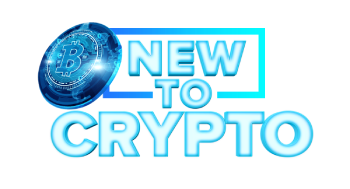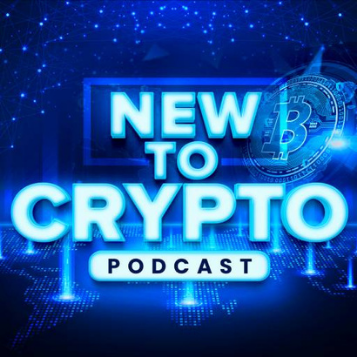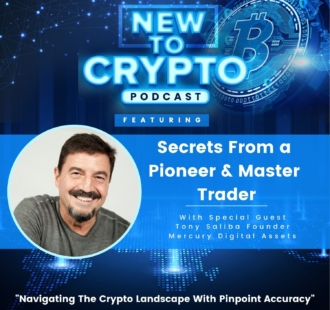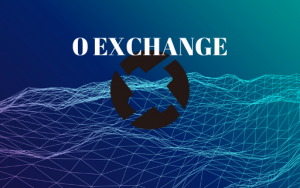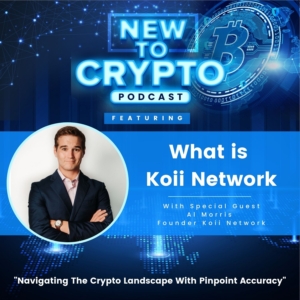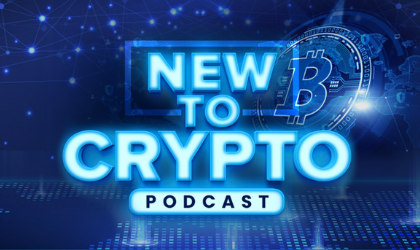Michael 0:01
Welcome to the New to Crypto Podcast designed to guide you through the crypto landscape with pinpoint accuracy created for the new and intermediate crypto investor. Join your host Crypto Travels Michael as he takes you through the different facets of getting started and succeeding in your crypto journey. New to crypto podcast brings you new episodes daily Monday through Friday with surprise bonus episodes sometimes on the weekend. Let me ask you, are you new to crypto and don’t know where to start? Are you more experienced but have questions? Then you’re in the right place. This podcast is designed for you coming at you from the Trading Center and the Lifestyle Design Studio. Here’s your host Crypto Travels Michael.
Brave wallet is the first secure crypto wallet built natively in a web three crypto browser, no extension required. You can store, manage and grow your portfolio and get NFT’s and multi-chain support. Download the brave privacy browser brave.com/newtocrypto and click on the wallet icon to get started.
Today’s episode is not one to miss. I have Tony Saliba, the founder of Mercury Digital Assets here today. Tony is a globally renowned business leader and a pioneer in the trading industry for the last four decades is a serial entrepreneur and master trader, as well as a trainer of traders. He has been a board member of the Chicago Stock Exchange. He is the founder of international trading Institute, liquid point matrix holdings group and efficient Capital Management. He is also an author of numerous books, including the well-known book called Managing Expectations. And he is also the co-owner of the Elite Football League in India. Definitely do not miss this episode, Tony. It’s an honor and a pleasure to welcome you to the show.
Tony 2:01
Thanks, Michael. It’s my honor and pleasure. Great to be here. Thank you.
Michael 2:06
Before we dive into everything, can you tell our listeners a little bit about yourself?
Tony 2:11
Sure. Well, after college, I started as a stockbroker. And this was in the 70s. And it was pretty slow. In fact, a big day in the stock market was 11 million shares. And we do that today and about the first 50 milliseconds. And I asked the guys I was working with as a junior sales associate well, who makes all the money in this business and they said, the guys on the floor and I was in Indianapolis, and I grew up in Chicago and caddied for guys who are on the floor. So I came back to Chicago, got a gig as a clerk and quickly figured out options. And within six months, I was on a seat and trading from 78 to 91. I was a floor trader. During that time, Michael, I would say necessity is the mother of invention, was my watchword. And in 84, I had to develop my own style of managing risk and recognizing opportunity. There were no computers on the floor for theoretical values, you’d have to get them off the floor and print them out. And when the stocks move, you know, it’s very hard to maintain a Delta neutral type of position.
So I’ve figured out I developed a plan for relative pricing. And I would put them on these trading cards like this, the regular trading cards, and then in 84, I decided I’m going to write my own program. So I teamed up with a guy who actually was a coder, taught him options and taught him my style of breaking down a position and doing risk management, relative pricing. And my first software program took a lot of work out of my life and made everything streamlined and more efficient and less error-prone. I also happen to have a clearing firm at the time with a lot of options traders that cleared there. And my second program, which was a couple of years later, wrote a margin package with the same guy. He did the coding, I directed him and we were able to optimize our overnight positions back then if you recall in the early 80s. Interest rates were in the high teens, and it was expensive to borrow money. So this program saved us millions of dollars. And then from there, I’ve been in FinTech ever since I founded Liquid Point in 2001. And we built it up and sold it to a bank in New York about six years later. And then I started the Matrix about four years ago. It’s another broker dealer that I handle predominantly options traders, and it’s going gangbusters. I started working at Mercury in 2017. And we took the approach that we did in the options business and overlaid that on crypto and our clients are predominantly institutions that service your listeners.
Michael 5:15
Well, Tony, your wealth of knowledge and expertise. Thanks for unpacking and sharing that.
Tony 5:21
Sure.
Michael 5:22
Before we dive in, can you share a little bit about Mercury digital assets, your company, can you share a little bit about Mercury and what it does?
Tony 5:31
Sure. Mercury is a technology company that is focused strictly in the crypto space, but we handle all crypto options. We have algos. So if you’re a customer of one of our customers, you have a few full suite of algo applications. You can trade on multiple markets, we have a liquidity pipeline with a bunch of different market makers and OTC desks that we provide to our customers for their customers to get best pricing. And our solution can be modified and customized based on the user groups a desire so well, we have mobile app, we have desktop app, and we have a full stack of technology all the way down to we don’t do custody. So we don’t do settlement and custody. But we are partnered or connected to a number of the custodians and are able to deliver a full solution. But we’ll take from the front end where the customer makes trading decisions on a white label version of Beacon, which is our front end that can go if they’re larger orders and go to a desk to shop them around or completely automated RFQs that have a number of different liquidity centers. Well known names that are in the industry are connected to us.
Michael 6:55
Okay, awesome. And I have some questions that will go down some of that avenue here shortly. What would you say are the biggest challenges that traders face?
Tony 7:05
Well, no matter what you’re trading just in general? That’s, you know, a great question. I think the aspect of discipline, which also involves your focus, is a challenge. We have so many distractions, or possible distractions, and discipline is not only maintaining focus, but also having a conviction on a trading idea. I don’t trade very much, but I’m thinking about getting back to trading more now. I mean, the last two years, I’ve been focused on building up the business, and no matter what your style is, what your timeframe is, the size of your capital, having a plan, and sticking to the plan, having an exit if the plan isn’t working, and being being able to stay focused, that’s a very high level and very basic. That’s why some training psychologists have become very popular and famous over the years. And there’s a company that a friend of mine runs that is actually bringing out a concentration hat. It’s like the military has their concentration helmet. Elon Musk has an actual implant that does similar things. And it cuts out distractions, while you’re, whether you’re putting or trading things that you can easily change the course of what you’re doing by being distracted. So having that ability, which not all of us have, I mean, it’s very easy to go down a rabbit hole, look at something else. I have the news on and background, whatever. But that focus to me is a true sign of a great trader, a great athlete, any professional that can focus is going to be head and shoulders above the rest.
Michael 8:53
Okay, so that’s that also would be the advice that you would have for traders who are just starting out. Yes, like the focus, and to be patient and to strive for discipline.
Tony 9:05
Yes. Okay. It’s a buzzword for a lot of people. It’s easy to say, people want, you know, blood and guts, examples of things that you can tell if you’re, you know, being disciplined or not. And there’s a lot that’s been written about it. I’ve read and written some things about it. But for the most part, if you don’t know whether you’re disciplined or not, then you need to drill down on that. If you are, you’ll get it, you’ll say okay, I’m confident this plan isn’t wrecking my style or my approach to the marketplace. I’m also a big fan of sounding boards. Being able to have an individual or a small group of trusted people to bounce ideas off of doesn’t mean you should change your mind. But be open minded about it. It saves so many, like for instance, I’ll tell you a quick story. Two years ago, almost to the day, maybe two years, two weeks ago. And the story of the pandemic was starting to really take shape. And I had friends that, you know, went out and bought a lot of professional traders, they were getting ready for a collapse. And they actually started probably buying the puts in January, Michael, when we first started hearing about it, and you know what they were spot on, but they bought the wrong expire, ease, they expire, big market move, and they were left, you know, empty handed, they had a very small amount that bridged over into the March timeframe. And maybe they salvaged what they lost in premium on the other stuff. So nobody was really talking about it with each other. I heard about it in great detail, as these puts were expiring, and they were, you know, season pros decades in the business. But if they had sounding boards, and were talking to others and saying, What do you think, what’s a better strategy? Should I go out a little bit longer, maybe go a little further out of the money so that I’m not spending as much premium but buying that time, you know, might have worked out really, you know, a lot better for them. So those are some basic tenets, especially for people new to the marketplace.
Michael 11:17
Thanks for sharing that. That’s just additional confirmation, I know, when I trade myself, I try to, you know, I strive to be disciplined. I have an objective when I enter, and I’m looking to exit. You know, I have basically benchmarks that I’m looking for, and we have a small, small group of others that trade. Definitely not on on your level, I know you’re a legend, we actually aspire it, you know… to reach your level, but… you know
Tony 11:43
To kind, but you know, your audience, some of your audience is probably going to say, Okay, I got that. But believe it or not, even for seasoned traders, and they wander or drift from what they’re doing well, they start to leave their better habits behind. And it is so important to go back to that, you know, it’s like a Zen master who requires the student to come and renew what they understand about the teachings and have a refresher course. But if you have that group of folks that are a sounding board for you, it just goes so far to help, you know, stay focused, and stay centered in what you’re doing.
Michael 12:24
Okay, definitely noted. Tony, you came from the traditional markets. And that brings up the question: Why crypto? What’s Mercury? And what is it about crypto that has your attention?
Tony 12:37
Well, great question. Because it was stated at the top of the discussion about necessity being the mother of invention. In fact, I’m pretty sure my kids are going to put that on my… tombstone. Because I walk through life and see people with problems or little stupid things that are repetitive that can be programmatically taken out of the situation. And as I know, I started digging in after a few years of being away from crypto. A great man and a fantastic researcher, analyst Nick Colas was a colleague of mine, when crypto came out in oh nine, and I’ve read everything you wrote every morning. And you know, very interesting. I think he has a podcast himself right now. And I learned about Bitcoin right away. And I was like, Okay, this is cool. I understand it. I understand the concept of the blockchain and what is being done here and how you know the efficiencies of this. And then, after a year or so reading that stuff, I put it aside and went about my options business until about five years later, six years later, I saw that the marketplace was growing up. And they were missing what we were doing in options. And that is workflow automation for the professionals and that no matter what the product is, if it’s a trading instrument, larger customers, larger investors need to have an intermediary to talk to if they’re going to place large orders. It’s very hard just to open a desktop or get your first wallet and plunge in for big orders, you know, hundreds of 1000s of dollars, millions of dollars transactions. So a lot of people definitely those coming from capital markets would prefer to have an intermediary to talk to them about it and execute for them.
And so we’ve seen over the last couple years, a proliferation of trading desks, OTC desks, and even the capital markets now are having crypto divisions. So we set up mercury to use the same great technology that we built, but next gen technology that we built for Liquid Point, which was the preeminent technology for sell side options agents and made it crypto friendly. And we built in all the same algos, we built in all the same. We have IRF, queues and IOI and the ability to slice and dice these large orders. So our customers are our big institutions that service individuals of all sizes. And even out to the smaller trader, the so-called retail trader with our front end, we have a mobile app, and we have a desktop app, and then a workstation for the traders, professional traders. And it was natural because these groups, whether you are former options traders, or just starting out and being crypto native, the workflow and the trading ideas in the trading activities were quite identical. You know, in terms of an option space, we have hundreds of 1000s of strikes on all the stocks that trade and then you add the indexes and ETFs to them. So you have a lot of information to manage. And mostly traders will focus on a small portion of that universe, but the agents need to cover a lot. So we handle a lot of data, we present it really well. We have full front to back reporting, you know, margining when it’s necessary, and it’s been a labor of love. We have some very large clients, we have some clients that have a lot of small clients. I’m a well known crypto ATM company that has hundreds of 1000s of users on our software. So we touch a lot of the ecosystem, and probably about a dozen countries. Right.
Michael 16:53
Wow. Well, Tony, thanks for sharing that I actually have some more questions about mercury and some of your technology in you know, just as being an insider and, you know, a leader in the industry. I have a couple questions about whales that I have to ask, you know, like, what are the whale games? Like, you know, you hear a lot about whales spoofing bids and stop hunting. And does that really happen? And how does that happen?
Tony 17:21
Interestingly, for your audience, you know, I’m a guy whose past is prologue. Okay, so I don’t live in the past, but I, you know, take visits to it and bring it back to the present and then see how it overlays in the future. And I, you know, I timeshift a lot in that regard. And I witnessed a lot of what you’re speaking about back in the day, right? Okay. Now, today, at least on the listed markets, there’s a lot of technology that really is on the side of regulators. So spoofing and stalking and various trickery techniques that used to happen in the day. And mostly in futures, it was very hard to do it in options, because it was a derivative of liquid underlying, but they did it in stocks. A lot of that, you know, has been excluded from the listed markets. On the crypto side, it’s very hard to see it. Okay. And I can’t say unequivocally that I’ve seen it happening. But I talked to a lot of traders, I talked to a lot of brokers. And I would guess that it does happen. If you’re a small trader, and you’re trading small lots and regularly, you may not run into it. But if you need to get something done of size, and you show your hand to the wrong, you know, rope, I think you can see the mark, depending on what underlying you’re trading, particularly if you’re off the top five, most liquid coins, I think you’ll encounter whale games. And, you know, I think that’s one of the things that the SEC is probably going to, you know, look into at some point, but, you know, I don’t have an indicator that shows me that we haven’t had clients that complain about it too much to build something. But if you look at a lit market, you can see there’s not, you know, the depth of the market, really compared to the capital markets, is not robust. You need aggregation. You need multiple venues, we have 30 venues that we bring together to try to avoid that.
Michael 19:32
Wow. 30
Tony 19:35
Some OTC some let… Some market makers as you get more market makers in the space that are from the capital markets, Michael I think for the most part, they come to the table with a regulatory conscience and that and I know a lot of them, I’m partners with with two of them and I know they do not want to color outside the lines. Because on the listed side, it could be very expensive, even though on the crypto side, it’s not implemented and may never be implemented for the underlying, I think derivatives when they come to the US, if they don’t trade on a traditional listed exchange probably be regulated, even like, let’s say, Coinbase. You know, such trading options, I think they’ll be regulated semi similarly.
Michael 20:24
Okay. And market makers get a bad rap in the space, are they truly Delta neutral? Or is the norm on crypto Twitter, right? Like, are they also playing these games well or was…
Tony 20:35
That I can tell you from experience, because we are my broker dealer, we’re connected to all of them. And we see the different styles of response. And I would say that unequivocally, there are some that are Delta neutral bulk of the time, and there are those who are never Delta neutral, and they have a better view of the market, for instance, and they have their lane, if you will, I wouldn’t go so far as to paint it negatively, like a whale game, I don’t want to use their names. But I know specifically, they do provide a good service in the marketplace. And I would say that the same is true in crypto, but they have better analytics, they have a line, they push their books to be stacked the way they’re leaning. So maybe let’s say there, Bush, there’ll be a bid for five or 10 times as much as they’ll offer. Because, you know, as a trainer, every time there’s a bid or offer, every time there’s a transaction, that’s market data, that’s telling you something, and they process it and being in the market as a market maker, you have a much greater attenuation to all those data points as they’re happening. So that will either underscore your thesis of your line, or get your systems to reconsider that maybe you missed something in your hypothesis. So the market makes its obligations along with the benefits, but I’ll let you be top of the book getting that information and learning now, do they push markets around? Maybe? Maybe? Yeah, I mean, I don’t think there’s like tremendous whale games, where a, you know, individual with inside information, for instance, can really take advantage of the marketplace, I just think that they’re really good at what they do better than most. And their market makers provide a service, but Lien not always, but when they do one way or the other. And then when they get confirmation of their thesis, they can push it.
Michael 21:22
Tony, thanks for sharing that. You know, the crypto markets are not as mature as traditional markets, what things are still to come to crypto that traditional finance already has, and what effects will they have on the markets?
Tony 23:04
Great question. There’s so much to come. It’s coming. It’s coming faster. Just in the last few years, the situation with banking, clearing settlements and everything has been upgraded tremendously. Interoperability in the listed space, we have 16 exchanges. Okay. Now we have infinitely more crypto venues when you consider DeFi and not. So you have interoperability where the connectivity to multiple liquidity centers brings a more fullness of pricing power to the end user. Now, along with that, one of the big things on the list in the capital markets, for instance, in the equity and options side is reg NMS. So you have the best execution metrics. Mercury is set up to give you best execution and best execution metrics. The difference is on the listed side, you have a benchmark because the exchanges are on the system, you have an NBBO, which is a national best bid and offer and with crypto would be GBBO global best bid and offer if everything was connected. So our location would not be a big thing. You know, even five years ago you could ARB spot between London and Hong Kong for instance. And there was big money in it because there were no connected markets to the degree they are today. Stuff is much tighter today. But it will get better and even more connected, at least in the US as the regulators start to take a step towards it. Now. That’s a double edged sword. On the positive side are more tools, more derivatives, you know, we have, for instance, we have algos that will leg trades for the user between venues, a consolidated spread book so that you can see where the options are trading at multiple venues. So the tools are coming, some of them are here now, just like 20 years ago, when there was no technology and options, the stuff that we did on our head or on paper for trainers, the technology started being built and proliferated to the end users with Thinkorswim. And options express more recently, you know, companies like weeble, or Robin Hood, for instance, and giving a lot of great tools that only pros had a decade earlier, you’re going to see that more and more in crypto, there’s some of it now, but to proliferate those out to everyone connected to derivatives markets, particularly for US customers is on its way.
Michael 23:22
Okay, let’s segue into Mercury then, which provides trading technology for the crypto market. Can you break down the Beacon platform and what it offers?
Tony 26:02
Sure. So beacon platform was built for the sell side user agent broker, if you will, somebody who has customers write and needs to handle specific order types and specific, seeking liquidity from a lot of different customers, whether they’re still talking to them or doing it on chat, or just getting it in electronically. So it’s an order book that allows the agent to get the order flow and be kind of a traffic cop. If it needs assistance on liquidity and manages it, go out to our marketplace with RFQs. It’s instant, you know, under a second tenor 10 or 15 milliseconds max to get a two sided market, it’s super tight. And possibly that order needs to be executed over a timeframe TWAP or based on how the notional is trading during the day or VWAP. And our liquidity providers are the biggest, you know, on the planet, we have over 20,000 pairs that we can offer our clients and the tools that the agents have, allow them to save time, eliminate fat finger errors, manage a much larger book, automate a lot of those tools, put a markup in, if that’s their style of compensation with their clients, and give full on reports back to the clients and their management. So it’s a professional trading desk, that’s what beacon was built to do. We also have a matching engine. So the larger clients can actually internalize the flow. So their customers can trade with each other and eliminate having to go out to the marketplace too often. And then more recently, we’ve built a mobile app, which has been white labeled, and is in service in a number of different countries with the agents so they can reach out to their customers. So we have a full suite of trading tools that are just pretty much nothing that we don’t do in that regard. As I mentioned, while we were chatting before we started with the exception of settlement, that settlement aspect, we don’t custody, and we don’t clear the trades, we have relationships with a number of the larger names on the street to do that.
Michael 28:34
Okay, so it’s a robust platform with extremely quick execution. That’s awesome.
Tony 28:39
Absolutely, everything’s fast. Everything’s best prices, best execution, people go to our website, we also have a token that we’re coming out with in March listed a utility token, we’re in the midst of friends and family round. And once that’s finished, in the next week or so we’ll be listing that and our website has all the tokenomics on that, too. It’s fun. We bring a lot to the small trader. And we’re rolling out an education component for options just because that’s another company that I have that we do those things on to Michael
Michael 29:18
Brave wallet is the first secure crypto wallet built natively in a web three crypto browser. What’s web three? web three is freedom from big tech and Wall Street, more controlling better privacy, but there’s a weak point in web three, your crypto wallet. Most wallets are browser extensions, a web two technology that means the same old risks, app spoofing, phishing, scams and theft. Brave wallet is different. Brave wallet is the first secure wallet built natively in a web three crypto browser, no extension required. With brave wallet. You can buy store, send and swap assets manage NFT’s event can hacked other wallets and dapps. All from the security of the best privacy browser on the market. Whether you’re new to crypto or a seasoned pro, it’s time to ditch those risky extensions. It’s time to switch to brave wallet, download brave at brave.com/newtocrypto and click on the wallet icon to get started.
Tony for people who do not know what is OTC and what are the OTC white label solutions with Mercury?
Tony 30:31
Great, great question. Well, so I think everybody on the planet or at least in the English speaking world is aware of Coinbase and Binance, Gemini, Kraken, you know, some of the bigger exchanges and you know, they’re a one stop shop to open an account and get access to products that they offer, and OTC is pretty much wall to wall and with a OTC broker or principal agent combination that will make you markets and avoid having to go to the exchange, pay the exchange Commission’s risk, you know, having any hacking or any problems that some of the exchanges might introduce in the situation. And larger trainers utilize both right or connected to some of the lead venues. But our liquidity comes from these OTC desks, a lot of them are former options market makers that provide a deep and tight market on popular pairs. As I said, all told, we have over 20,000 pairs that we can offer and adding them all the time are all coins, new coins, and you just manage your own wallet, you don’t necessarily have an account with an exchange, and it’s very popular. It’s proliferated over the last couple years. And I would say Mercury’s solution is a you might call it OTC in a box, and we give the OTC desk the ability to get rid of, you know, chat and multiple third party apps that they use straight through processing with their reporting margin. We do all the cash checks to make sure the customer can fully pay for what they’re buying. So yeah, it’s our most popular product and some of our OTC desks have taken in white labeled made their own design. And I think we have samples on our website, make their own design for mobile apps, or desktop apps for their customers, all browser based html5 super fast, and it saves them time to market full control and extremely reasonably priced for them.
Michael 32:50
Awesome. Thanks for breaking that down, Tony. And I think it gives our listeners a much better understanding. What solutions are exchanges and other service providers in need of most would you say in terms of the crypto industry?
Tony 33:05
Well, I think the custody slash banking component that allows a user to trade multiple asset classes, we had this problem in the late 80s, where you could not efficiently trade futures and listed options or the basket of stocks because there wasn’t cross margining. And I was actually involved on the committee. We work very hard to get to regulators to accept futures and equities in the same risk package. So your capital could be used efficiently right, rather than having to put up margin for futures and margin for equities. So cross margining is one thing, an easier way to get your Fiat rails the ability to open accounts with fiat currency and start trading a lot of the custody shops you know, don’t have banking license. So they have to have a relationship with a bank and be blunt about it. And a lot of capital markets shops are still nervous about crypto, mostly because they’re not sure what the regulations are going to look like. So they don’t want to get there. You know what in the wringer and then have the Fed come back and say you put a toe over the line and had a violation. Last year, Schwab had an open letter to the SEC, please give us guidance. Our customers want to trade this. We want to give them a solution. But we don’t have guidance yet. So I mean, it was a transition of the election year. It’s overdue for that guidance, but I think cross is better banking or easier banking for Americans that’s right around the corner.
Michael 34:50
Okay. Excellent. Tony, I have a question that I’m sure our listeners would love to know the answer to. What is the highest conviction best trade union Ever Made in your career?
Tony 35:01
Uff… Well, okay, two components that question my call, best trade ever versus highest conviction. So I’ve had a series of great trades that worked out that I had extremely high conviction on when I did it. I mean, I knew as a spreader and options, I recognized my win as I put the trade on. And then it was just a matter of the trade coming in line. Whereas those who are just trading the underlying or doing technical analysis, or swing trading, they recognize one half and then something else has to happen to be profitable. And that’s saying that somebody who’s really good at technical technical analysis, sees a structure and takes advantage of it, and they know they’re gonna win. But in options, it’s even more certain you can lock in winnings when you see them set up and you make that trade, or my best trade ever, I would say was, what happened when I was just performing my market making requirements and buying what everybody thought was crap from Maryland Lynch, and Goldman Sachs, as brokers for their customers, as they were selling deep, deep, deep out of the money puts in the summer of 1987. And I was being overloaded with these putts that seemingly were going to be worthless, and I didn’t have a lot of choice. And there were other of my fellow market makers that had to do the same thing. But a lot of them are like, hey, you know, I’m fed up with this. So the key was, how do you hedge something that’s nearly worthless, because the decay which was going to be automatic, having purchased so many of them was going to be large, there wasn’t an easy hedge, right. And I was a butterfly trader, and I put on a lot of butterflies that I calculated would cover my exposure to these deep out of my inputs that I was getting stuck with. And those butterflies I was constructing at a very low cost, so that if the market moved, my hedge wasn’t going to kill me. But if it didn’t move, the hedge on the junk I was getting stuck with would cover my costs. So this is a complex structure. I established it and started in late August, through September, late September, and when the market started to crack in early October of 87, I had to do some maneuvering so that my hedge which was starting to make me money to cover all the premium I had on those out of the money butts. And it was tricky to get rid of some of the hedge and there’s still no bid yet for the puts. And then boom, I’m just days before the market crashes. Still the biggest crash ever and market has traded percentage wise life started to be breathed into these putts where the guys who sold them were coming back through Merrill Lynch and Goldman Sachs and some other brokerage houses to try to buy them back. And nobody really had them but a couple of us and we were stingy and letting them out. And they ended up going up over 5,000x.
So 50 times, and went from $6 to $3,000 or more, actually. So the hedge was closed. That was the butterflies, they collapsed, uh, gave back some of the hedge profit, but it was fixed, done and dusted. And these things exploded and made millions. So that, you know, was my legendary explosion trade that I didn’t have conviction because I was just performing my market making requirements, taking the other side of customer business, but constructed a hedge to allow me to do it and then paid off huge, bigger than a lot of almost anything else I did and one’s specific trait and it’s talked about I think in book Market Wizards and maybe a couple other books that have been written about it but you know, we have a saying as you probably have a saying it’s better to be lucky than good. So they’re, you know, My luck was bad and these guys kept selling them. The good part was I knew how to construct a delicate hedge to allow me to keep doing it and that gets stuffed with 1000s and 1000s of dollars of worthless junk. And then the good part also was that I was able to hold on while the market crashed and scale out of those in a meaningful way.
Michael 39:55
Thank you for sharing that Tony to our listeners. There’s a wealth of information In the knowledge that Tony just shared. Tony, in your group of companies, do you have any trading education? Maybe some of our listeners will listen today. And you know, they’re really interested in trading. And you know, maybe they don’t know where to start, or maybe they’ve traded before. But you know, they really need to be pointed in some more, you know, directions of being able to be educated in this area a little more.
Tony 40:22
Yes, we have a program called the elite traders challenge that we do in conjunction with a DTI Diversified Trading Institute. They cover futures, options, equities, and everything. Great, great group of guys. And the participants have access to us. We actually have virtual mentoring, we have a portal, we answer their questions, one on one, myself or one of my colleagues, usually within an hour or so but definitely within 24 hours. So the group of users that are on this program, they get all their questions out there. If there’s some that are useful for the audience, we will post them anonymously for everybody to see the question and the answer. I mean, I’ve had people ask me, well do the strike prices forecast where you think the stocks are going to grow? And I’m like, as stocks gonna go to. And I’m like, well known strike prices are mechanical and have nothing to do with momentum or fundamentals, or technical analysis, just the raw placement of the strikes. So a very basic question and get that out of the way. And then you start to move into answering questions about constructing trades, and strategy versus strategy, things like that. And it’s called Leap traders challenge. I think it’s like a free trial. It’s where you can get access to us. We’re working with a couple other groups, bring things out. Trade zeros. The company we work with trade easily is good as a new company that’s coming out, I think, in March that has leaders on it. So what we try to do is supply this content to larger groups. And a lot of it’s free. We have videos, we have lessons, the lead traders challenges, I think, just a small charge for it. But every Friday at 11 o’clock Central DTI has a question: the pro session is free. They get 1000 or more people at lunchtime that tune in it’s one hour, they usually highlight stock, options, commodities. And I think they’re going to have me start talking about crypto soon, but happy to extend access to that to your website, Michael, to your audience. I mean, why not? I mean, you could cut that out. But you know, love to do that with you and give you access to the free stuff, which is really awesome. Very good.
Michael 43:13
Okay, excellent. Tony will have the links on the episode Blog Posts page. So Tony, in closing is Is there anything else you’d like to share with maybe regarding mercury or just markets in general?
Tony 43:26
Well, I think crypto to be part of everybody’s portfolio gives you the freedom and also the flexibility of store of value, then the newer, more, if you will, speculative tokens and NFT’s are cheap fliers, if you are so inclined. So I think it’s a wonderful place to be spending time and learning more about and taking advantage of the infrastructure that has been put together for this. I see nothing but growth. And as far as Mercury, the marks are going to be tradable. And March probably less than a half of a penny a pair. So visit our website and stay tuned and Michael is just really great to spend time with you.
Michael 44:14
Awesome. Likewise, Tony, thanks for coming out and being on the show. You’re welcome back anytime. And when you bring out the new token, we’ll have to have you back on and maybe we’ll do a special segment on YouTube.
Tony 44:26
Sounds… That’d be great. Really appreciate it.
Michael 44:28
Thank you Tony. If you liked today’s episode, definitely like and subscribe to the podcast. Show your support and chime in here tomorrow for another special episode. Until then make it a great day.
Thanks for tuning in to New to Crypto Podcast. If you liked the episode, be sure to follow and subscribe. You can listen to every episode on all major platforms to have an interest in being on the show or one advertising reach out at newtocrypto.io. Head over to our site newtocrypto.io to access the resources mentioned in each episode. Until next time, remember to navigate the crypto landscape with pinpoint accuracy.
